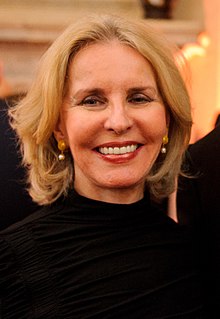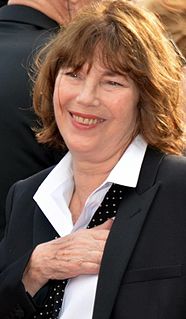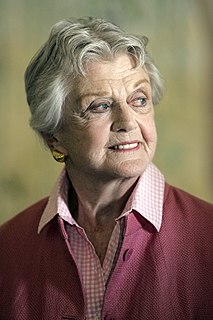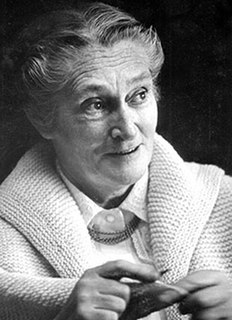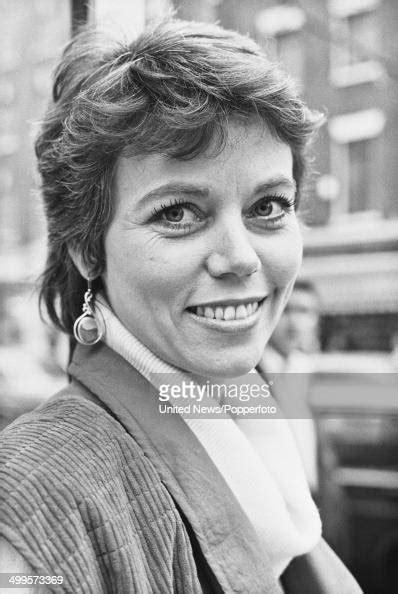A Quote by Sally Quinn
Then my mother had several strokes and my father, who was 85, couldn't handle it, so Donna came back and we went through the same thing here. She lives in Mill Valley; her group is organizing this event.
Related Quotes
Put yourself in Hamlet's shoes. Suppose you were a prince, and you came back from college to discover that your uncle had murdered your father and married your mother, and you fell in love with a beautiful girl and mistakenly murdered her father, and then she went crazy and drowned herself. What would you do? Go back for a masters?
When my father died, my mother came back from being Mrs. Birkin to being Judy Campbell. She was a stunning actress. She came out of her shell. She was herself again: this very independent, funny, intellectual lady - and was able to perform again, which was her life before meeting my father squashed it out.
The Samaritan woman grasped what He said with fervor that came from an awareness of her real need. The transaction was fascinating. She has come with a buket. He sent her back with a spring of living water. She had come as a reject. He sent her back being accepted by God Himself. She came wounded. He sent her back whole. She came laden with questions. He sent her back as a source for answers. She came living a life of quiet desperation. She ran back overflowing with hope. The disciples missed it all. It was lunchtime for them.
From my mother came the idea that going down to the sea repaired the spirit. That is where she walked when she was sad or worried or lonely for my father. If she had been crying, she came back composed; if she had left angry with us, she returned in good humor. So we naturally believed that there was a cleansing, purifying effect to be had; that letting the fresh wind blow through you mind and spirits as well as your hair and clothing purged black thoughts; that contemplating the ceaseless motion of the waves calmed a raging spirit.
One of my mentors was Patricia Schroeder, and one night she came to me on the floor and she said to me, "Why are we sitting in Congress, when a lot of women would try to do it and couldn't? Why are we here and others aren't?" And I thought back and said it was because my father believed in me and she said the same thing, she said her father believed in her and thought she could do anything.
Her [Eleanor Roosevelt] father was the love of her life. Her father always made her feel wanted, made her feel loved, where her mother made her feel, you know, unloved, judged harshly, never up to par. And she was her father's favorite, and her mother's unfavorite. So her father was the man that she went to for comfort in her imaginings.
My father was a dark-skinned brother, but my mother was a very fair-skinned lady. From what I understand, she was Creole; we think her people originally came from New Orleans. She looked almost like a white woman, which meant she could pass - as folks used to say back then. Her hair was jet-black. She was slim and very attractive.
(knitting while on a motorcycle) "For several years she knitted in secret (my father would not approve; she was to concentrate on motorcycling and LEAN into the curves, etc), and used a small circular needle (socks and mittens) in order to keep the knitting in her pocket until they were under way; then she leaned back slightly so Gaffer couldn't feel the movement of her hands. On the interstate one day, they were slowly passing a semi and my father happened to see the truck driver laugh and point out my mother's knitting to his passenger. Whoops-
In my earliest of years, my mother was a huge force in my life. She was for all intents and purposes, a single parent. My father had abandoned us. He was an alcoholic and a physical abuser. My mother lived through that tyranny and made her living as a domestic worker. She was uneducated but she brought high principles and decent values into our existence, and she set lofty goals for herself and for her children. We were forever inspired by her strength and by her resistance to racism and to fascism.
My house is full of paintings by my mother Pam. She was a fantastic, prolific artist but had no confidence in herself, thanks to my father running her down. They married during the war when she was 19 - she had planned to go to art school. But my father didn't want her to work, so she became a housewife.
